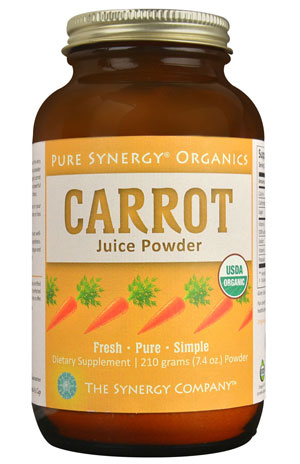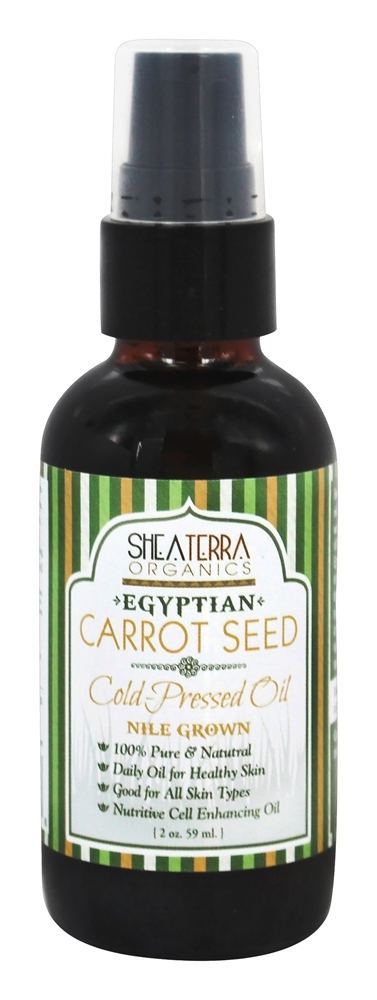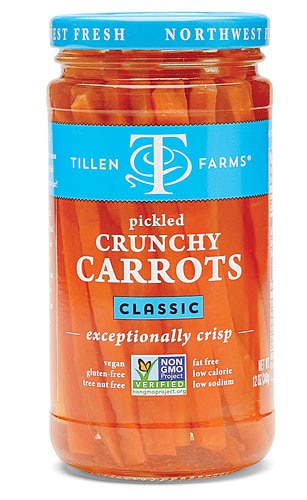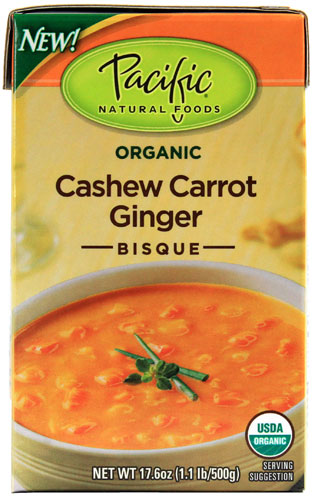As winter wears on, root vegetables are still in season. While many of us may be longing for fresh spring greens, chefs are turning to an unlikely source to add nutrition, color and flavor to the dinner menu. As it turns out, you don’t have to be a rabbit to love carrots!
Nutrition in carrots
According to the U.S. Food and Drug Administration (FDA), one 7-inch long carrot with a 1-¼ inch diameter has 30 calories and zero fat. One carrot also delivers: 3 percent of the daily value (DV) for sodium; 7 percent of the DV for potassium; 2 percent of the DV for total carbohydrates; 8 percent of the DV for dietary fiber; 5 grams of sugar; 1 gram of protein; 10 percent of the DV for vitamin C; 2 percent of the DV for calcium; and 2 of the DV for iron.
The big nutritional bang in carrots comes from 110 percent of the DV for vitamin A. The National Institutes of Health notes that vitamin A is a fat-soluble vitamin that is important for healthy vision, reproduction and the immune system. Major organs that need vitamin A include the kidneys, lungs and heart.
Carrots take center stage
Packed with flavor and nutrition, it’s no wonder cooks are finding new ways to use carrots. Some restaurants have started incorporating the vegetable into delicate crepes, while others smoke them and roll them in nori to make carrot lox. You might find carrot juice and tequila served in a pepper-rimmed glass at a local bar. Or, look for roasted carrots as a hot dog alternatives at popular vegan cafes.
Is your mouth watering yet? If not, you might just be tired of the classic orange carrot. If carrots bring back memories of overcooked school lunches, consider trying a different variety.
Types of carrots
The orange carrots that we’re used to are cultivars of western varieties. Western carrot varieties got their origin 500 years ago in the Netherlands. These include: Chantenay, Danvers, Imperator and Nantes carrot varieties.
(FYI: the baby carrots you see in the grocery aren’t actually young carrots. They are carrots of a western variety that have been sculpted to be small.)
If you want to really love carrots again, try the eastern varieties. Originally cultivated in Persia over a 1,000 years ago, these carrots are usually white or purple.
Purple carrots are often popular with children, due to their color. But they are also very sweet, which tends to appeal to young palates. Look for Purple Dragon, Cosmic Purple and Purple Haze varieties.
White carrots are thin, and have a mild sweetness. They add pleasant, mild flavor to smoked vegetable dishes. Look for White Satin, Snow White and Lunar White varieties.
Go crazy for carrots
Carrots are a versatile root vegetable. You can add them to nearly any dish. For starters, try adding grated white or purple carrots for a touch of sweetness in your salad. Or, ribbon-cut thick orange carrots and dry roast them, then toss them into a pasta dish.
Here are five additional ways to creatively add carrots to your day:
1. Pure Synergy Organics Carrot Juice Powder
Simply stir a teaspoon of this 100% pure, organic carrot juice powder into a glass of water for a light, refreshing carrot juice drink. Nutrient dense, it can also be added to smoothies, yogurt or even baked goods for an instant nutrition boost!
2. Pacific Natural Foods Organic Cashew Carrot Ginger Bisque
No grating or waiting required to enjoy a bowl of creamy, hot carrot soup. This rich bisque features sweet notes of organic coconut, cashews and ginger to compliment naturally sweet carrot flavor. Just pour, heat and serve.
3. Tillen Farms Crispy Pickled Carrots
Bring instant elegance to an appetizer tray by arranging flavorful pickled carrot strips with cream cheese-filled celery stalks. Or, chop them and add to a cucumber-dill salad.
4. FlapJacked Carrot Spice Protein Pancake and Baking Mix
With no artificial or genetically modified ingredients, and a whopping 20 grams of protein per 1/2-cup serving, this easy-to-use (just add water!) mix lets you make better-for-you pancakes or breakfast muffins that taste like a carrot cake dessert.
5. Shea Terra Organics Egyptian Carrot Seed Oil
Let it sink in: your skin can benefit from carrot nutrition, too! Apply this nourishing, wrinkle-fighting oil topically for vitamins A and C, beta-carotene and micronutrients to naturally promote elasticity and moisture. 







